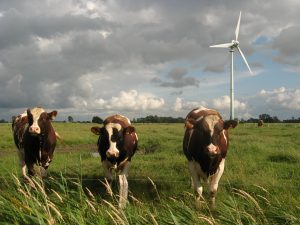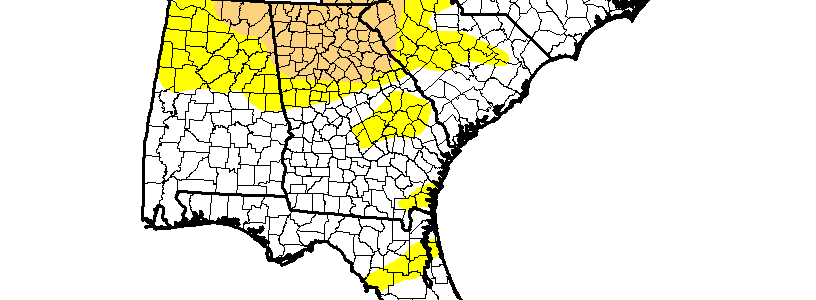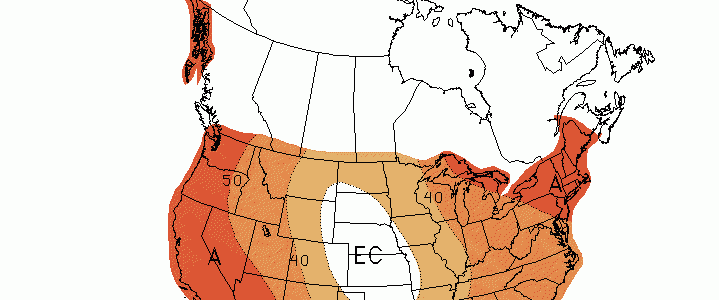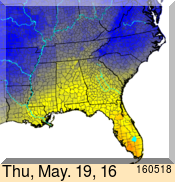-

A new study that was published recently in Geophysical Research Letters shows that “Emissions from farms outweigh all other human sources of fine-particulate air pollution in much of the United States, Europe, Russia and China, according to new research. The culprit: fumes from nitrogen-rich fertilizers and animal waste combine in the air with combustion emissions…
-

The new Drought Monitor which came out this morning shows a slight expansion of moderate drought across the Southeast. Most states maintained their status quo, but moderate drought expanded into northeast Alabama and abnormally dry conditions there now cover most of the northern half of the state. A change in the atmospheric circulation pattern over…
Posted in: Drought -

The latest 3-month outlooks were released by the Climate Prediction Center today. They show that for the next four seasons, above normal temperatures are likely in each season for the Southeast. This is based both on long-term trends in temperature, which have been gradually rising, and the impacts of the La Niña which appears to…
Posted in: Climate outlooks -

NOAA released their monthly climate report for the globe for April 2016 today. You can read the summary at https://www.ncdc.noaa.gov/sotc/summary-info/global/201604 and follow their links to a full report. Many parts of the globe were at record-setting warm levels, although a few cold pools were still present, including east of Hudson Bay and near Iceland in the North…
-

Now that hot summer temperatures are coming on, you might need information about the likelihood of heat stress injury to your livestock. USDA has a set of forecast maps which show the likelihood of heat stress each day for the next week based on weather forecast models (the forecasts are produced as a partnership with the National Weather…
-

Because of the dry conditions in the Carolinas in April, forest fires caused a lot of problems. Here is a write-up of efforts by the North Carolina Forest Service and the State Climate Office of North Carolina to use past weather to help fight the fires this past month.
-

Dr. Marshall Shepherd of UGA posted a blog entry to Forbes.com this week describing the cost of weather-related disasters across the world. You can read it here. In it, he states that “From 1995 to 2015, weather-related disasters killed over 600,000 people (roughly 30,000 per year) and injured or adversely impacted 4.1 billion global citizens.”…